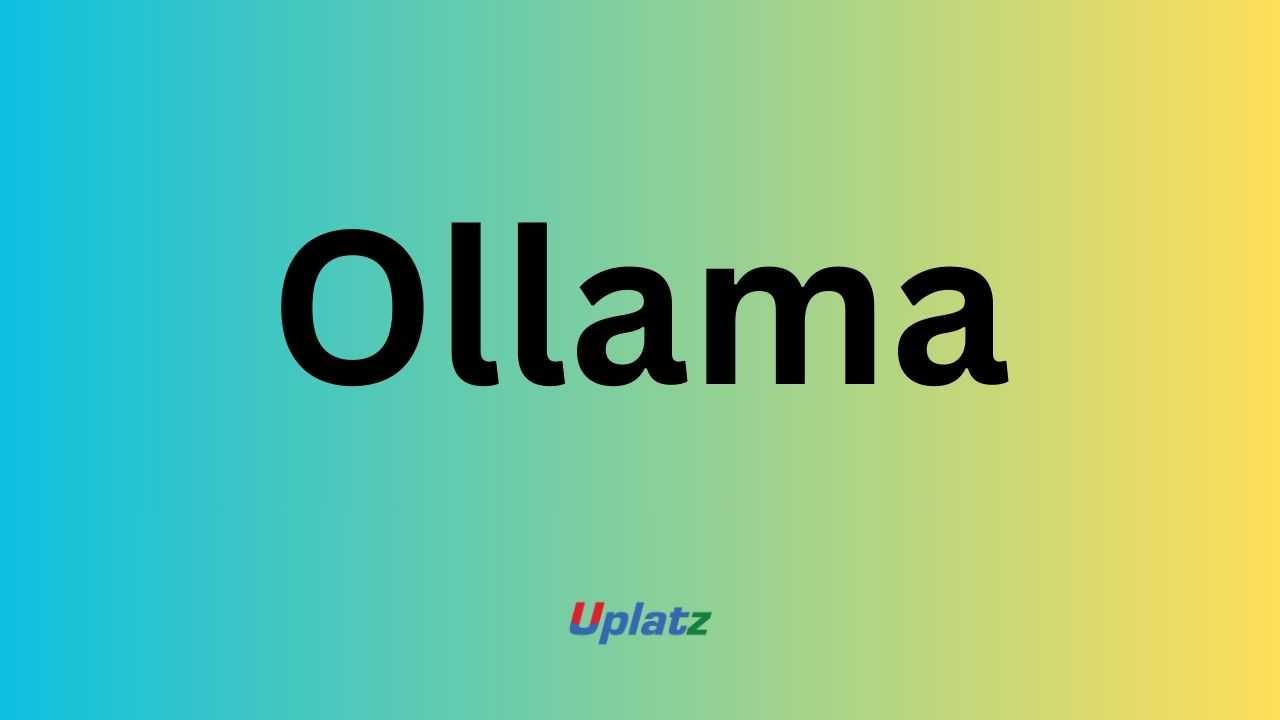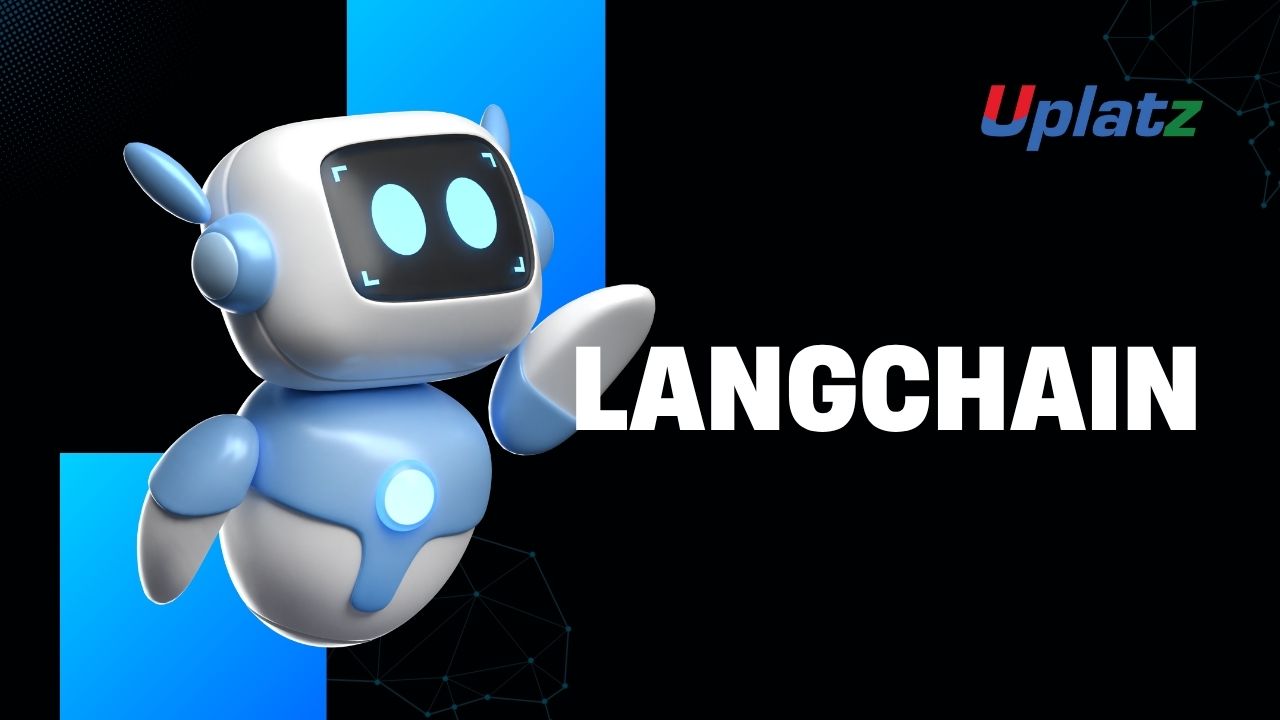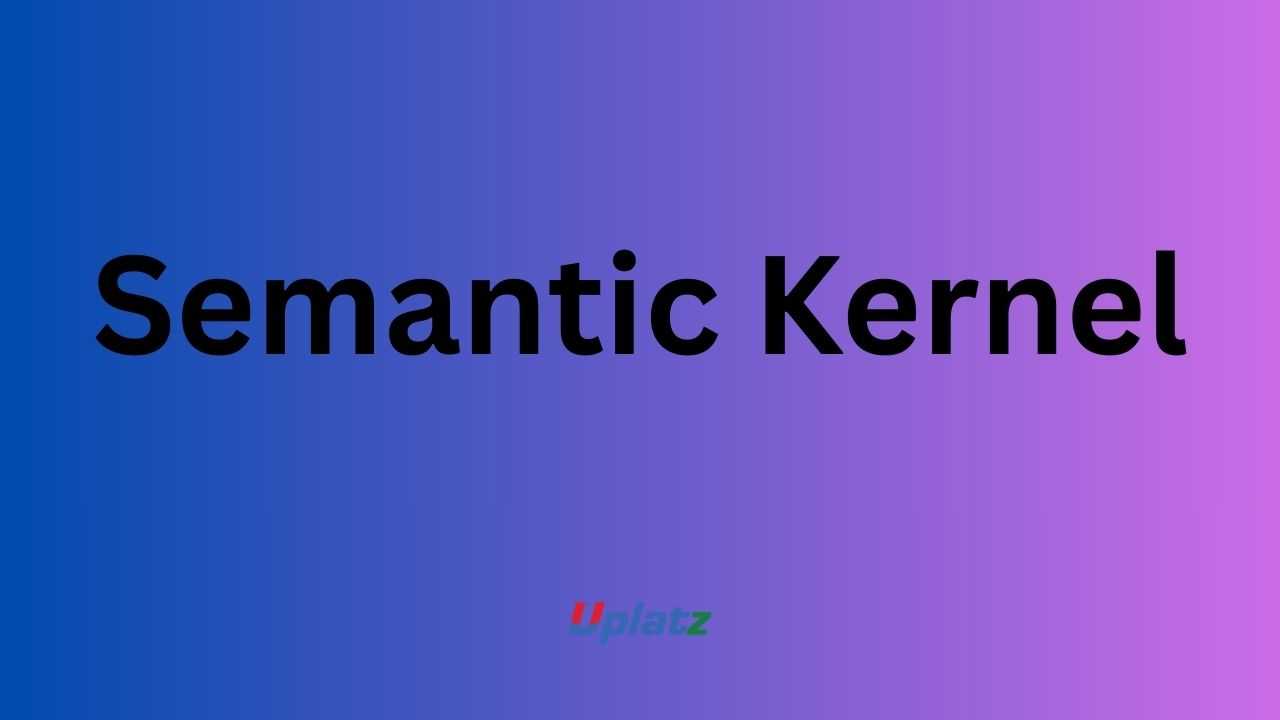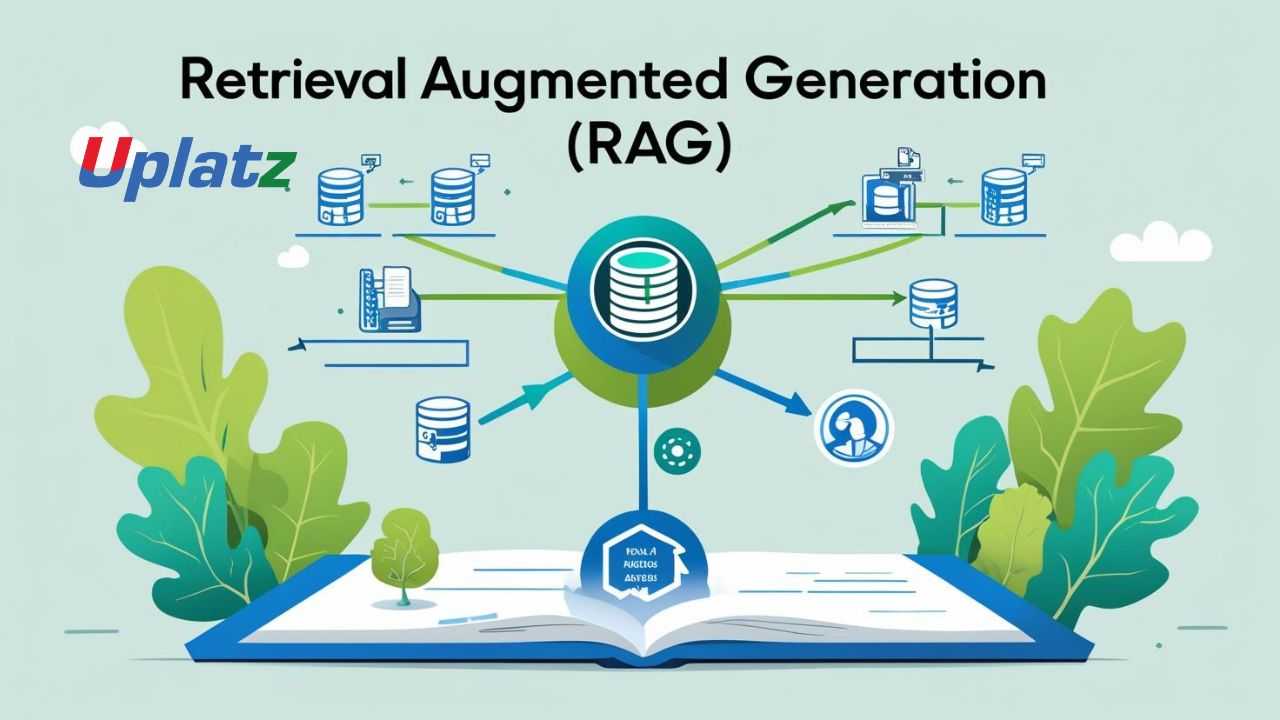Ollama
Master Ollama to run, manage, and integrate large language models (LLMs) locally for AI-powered applications. Price Match Guarantee
Full Lifetime Access
Access on any Device
Technical Support
Secure Checkout
Course Completion Certificate
Price Match Guarantee
Full Lifetime Access
Access on any Device
Technical Support
Secure Checkout
Course Completion Certificate
 97% Started a new career
BUY THIS COURSE (
97% Started a new career
BUY THIS COURSE (GBP 12 GBP 29 )-
 86% Got a pay increase and promotion
86% Got a pay increase and promotion
Students also bought -
-

- LangChain
- 10 Hours
- GBP 12
- 10 Learners
-

- Semantic Kernel
- 10 Hours
- GBP 29
- 10 Learners
-

- Retrieval-Augmented Generation (RAG)
- 10 Hours
- GBP 12
- 10 Learners

Ollama is an open-source platform that empowers developers to run, manage, and customise large language models (LLMs) directly on their own machines. It eliminates the complexity of cloud-only AI pipelines by offering a lightweight, developer-friendly environment for deploying models such as LLaMA, Mistral, Gemma, and other cutting-edge open-source LLMs.
With Ollama, you can load, serve, fine-tune, and embed AI models locally, giving you full control over performance, privacy, and cost. Whether you’re experimenting with AI-driven chatbots, integrating LLMs into enterprise workflows, or building autonomous agents, this course will guide you through every step —from installation to advanced integration.
The Mastering Ollama – Self-Paced Online Course by Uplatz delivers a practical, project-oriented approach that helps you run LLMs privately, build secure AI applications, and unlock the power of local inference without relying solely on external APIs or cloud vendors.
🔍 What is Ollama?
Ollama is a next-generation runtime and package manager for LLMs that lets you pull, run, and interact with models locally through a unified command-line interface. Think of it as Docker for AI models. It manages model downloads, versions, dependencies, and configurations in a single environment.
Ollama uses container-like bundles to package LLMs, simplifying distribution and experimentation. You can instantly switch between different models (e.g., LLaMA 2, Mistral, Vicuna, Falcon) and run them offline on your hardware. Its built-in API server allows seamless integration with your own apps, frameworks, or automation tools.
In essence, Ollama democratizes AI development, making powerful LLMs accessible to individual developers, startups, and enterprises without the need for massive infrastructure or proprietary cloud access.
⚙️ How Ollama Works
At its core, Ollama orchestrates local LLM execution by managing model weights, context windows, and runtime parameters.
Key technical features include:
-
Unified CLI and REST API: Run and query models via command line or HTTP requests.
-
Local Inference Engine: Executes models using GPU or CPU acceleration for low-latency responses.
-
Model Pulling and Versioning: Easily download and update models from Ollama Hub or custom repositories.
-
Prompt Templates and System Config: Define roles, temperature, and max tokens for consistent outputs.
-
Fine-Tuning and Adapters: Customise base models to fit domain-specific tasks.
-
Embeddings and Vector Stores: Generate and store text embeddings for semantic search and retrieval.
-
Security and Privacy: Run models offline to keep data and prompts private.
This architecture lets you run production-level AI pipelines on-premises while maintaining full data sovereignty and low operational cost.
🏭 How Ollama is Used in the Industry
Ollama is part of the growing open-source LLM movement, helping organisations and developers build AI capabilities without vendor lock-in. It’s already being used in:
-
Startups & Tech Companies: Prototyping chatbots, assistants, and code generators without API fees.
-
Enterprises: Deploying on-prem AI solutions that preserve privacy and regulatory compliance.
-
Research & Education: Experimenting with open models and academic LLM benchmarks.
-
Automation & DevOps: Embedding local LLMs into CI/CD pipelines for intelligent task handling.
-
IoT & Edge Computing: Running language models on devices for offline voice assistants and AI-enabled sensors.
By enabling local AI execution, Ollama reduces dependency on external APIs, improves response speed, and protects sensitive data—key requirements for modern AI-driven businesses.
🌟 Benefits of Learning Ollama
Mastering Ollama equips you with one of the most sought-after skills in the rapidly expanding open-source AI ecosystem:
-
Local AI Deployment: Run state-of-the-art LLMs without cloud limitations or subscription costs.
-
Data Privacy & Security: Keep all data on local machines—critical for regulated industries.
-
Customisation: Fine-tune and adapt models to your specific use cases and languages.
-
Integration Readiness: Connect Ollama to web apps, APIs, and automation tools easily.
-
Performance Control: Optimise GPU/CPU usage based on hardware and latency needs.
-
Future-Proof Skill: Gain expertise in self-hosted LLM management—a key trend in AI engineering.
This course will not only teach you how to use Ollama but also how to build reliable, private, and scalable AI applications around it.
📘 What You’ll Learn in This Course
Through a series of step-by-step modules and projects, you’ll learn to:
-
Understand Ollama’s architecture and workflow.
-
Install and run LLMs locally on different operating systems.
-
Manage and switch between open-source models such as LLaMA and Mistral.
-
Fine-tune and customise models for domain-specific applications.
-
Integrate Ollama with web apps and APIs using Python, Node.js, or curl.
-
Generate embeddings and connect to vector databases for semantic search.
-
Deploy and secure LLM-powered apps locally or within containers.
-
Troubleshoot performance, memory, and version issues.
Every lesson includes live coding examples, hands-on exercises, and mini-projects to reinforce concepts through practice.
🧠 How to Use This Course Effectively
-
Begin with Setup: Install Ollama and launch your first model.
-
Experiment Broadly: Try multiple models (LLaMA, Mistral, Gemma) and compare outputs.
-
Integrate Early: Connect Ollama to a simple chat or API app to see results in action.
-
Apply Concepts: Build AI utilities like a local assistant or content generator.
-
Engage with the Community: Share models and tips from the Ollama Hub.
-
Scale Up: Revisit advanced modules to explore embeddings and vector integration.
-
Capstone Project: Develop a fully functional local LLM API with custom prompts and memory.
👩💻 Who Should Take This Course
-
AI Developers & ML Engineers experimenting with LLMs and local AI tools.
-
Software Developers building chatbots, assistants, or AI-powered applications.
-
Researchers & Students exploring open-source model fine-tuning and deployment.
-
Startups & Enterprises seeking private, on-prem LLM deployments.
-
Tech Enthusiasts running AI models on personal hardware for learning and innovation.
No deep machine-learning background is required — the course balances concepts with hands-on implementation.
🧩 Course Format and Certification
The course is self-paced and accessible 24/7, allowing you to learn at your own speed. It includes:
-
HD video lectures and code demonstrations
-
Downloadable resources and scripts
-
Practical projects and quizzes
-
Real-world integration examples
-
Lifetime access with updates as Ollama evolves
Upon completion, you’ll earn a Course Completion Certificate from Uplatz, validating your expertise in local LLM management and deployment.
🚀 Why This Course Stands Out
-
Hands-On Approach: Focuses on real implementation over theory.
-
End-to-End Coverage: From setup to integration and deployment.
-
Privacy & Security Focused: Learn how to build offline AI systems.
-
Cross-Platform Learning: Works on Windows, macOS, and Linux.
-
Career Advancement: Gain skills relevant to AI engineering and MLOps roles.
You’ll walk away with practical knowledge to develop, customise, and serve AI applications powered by local LLMs using Ollama.
🌐 Final Takeaway
As AI continues to evolve, developers are seeking faster, more secure, and cost-efficient ways to work with language models. Ollama represents this shift—bridging the gap between cloud-based AI and self-hosted freedom.
The Mastering Ollama – Self-Paced Online Course by Uplatz equips you to run and integrate LLMs locally, fine-tune them for your projects, and deploy private AI applications with confidence. Start learning today and take control of your AI development journey—right from your own machine.
By completing this course, learners will:
-
Run LLMs locally using Ollama CLI and API.
-
Manage multiple models and configurations.
-
Build applications with Ollama + Python/Node.js integrations.
-
Use embeddings and vector search for contextual AI.
-
Fine-tune or customize models for specific tasks.
-
Deploy AI apps that balance performance, cost, and privacy.
Course Syllabus
Module 1: Introduction to Ollama
-
What is Ollama and why use it?
-
Ollama vs cloud-based LLM APIs
-
Installing Ollama on macOS, Linux, and Windows
Module 2: Running Models Locally
-
Downloading and running pre-trained models
-
Switching between models (LLaMA, Mistral, etc.)
-
Configuring model settings
Module 3: Ollama CLI & API
-
Using the Ollama command-line interface
-
Exposing Ollama as a local API
-
Basic prompt and response workflows
Module 4: Customizing Models
-
Fine-tuning basics
-
Model configuration files
-
Importing and modifying model weights
Module 5: Embeddings & Context
-
Generating embeddings with Ollama
-
Using embeddings with vector databases (Pinecone, Weaviate, Milvus)
-
Context-aware AI workflows
Module 6: Integration with Applications
-
Python and Node.js SDKs
-
Connecting Ollama to web apps (Next.js, Flask, etc.)
-
Automation with scripts and APIs
Module 7: Advanced Use Cases
-
Running Ollama in Docker containers
-
Using GPUs for faster inference
-
Scaling Ollama across multiple machines
Module 8: Real-World Projects
-
Local AI chatbot with Ollama
-
Document Q&A system with embeddings
-
Code assistant powered by Ollama models
Module 9: Deployment & Security
-
Private/local AI deployments
-
Security best practices for sensitive data
-
Balancing performance vs. hardware limits
Module 10: Best Practices & Future Trends
-
Staying updated with new model releases
-
Open-source LLM ecosystem overview
-
Optimizing Ollama for production apps
Learners will receive a Certificate of Completion from Uplatz, validating their expertise in Ollama and local LLM integration. This certificate demonstrates readiness for roles in AI engineering, full-stack development, and applied machine learning.
Ollama skills prepare learners for roles such as:
-
AI Engineer (Local AI Applications)
-
Full-Stack Developer (AI-integrated apps)
-
Machine Learning Engineer
-
Research Engineer (LLM fine-tuning)
-
DevOps/Infra Engineer (AI deployment)
With rising demand for private, cost-effective AI solutions, Ollama expertise is highly relevant in enterprises, research, and startups.
-
What is Ollama?
Ollama is an open-source platform for running LLMs locally, enabling private and customizable AI applications. -
Which models can Ollama run?
Ollama supports LLaMA, Mistral, and other open-source LLMs. -
What’s the advantage of Ollama over cloud APIs?
Ollama allows local, private, and cost-free execution, without dependency on external servers. -
How does Ollama expose models for use?
Via CLI commands and a local REST API. -
Can Ollama be fine-tuned?
Yes, Ollama allows custom configurations and fine-tuning of models. -
What are embeddings in Ollama?
Embeddings are vector representations of text, useful for semantic search, Q&A, and context injection. -
How does Ollama integrate with apps?
Through Python, Node.js SDKs, and API endpoints. -
Does Ollama require a GPU?
Not necessarily; it can run on CPU, but GPUs improve inference speed. -
What are real-world use cases of Ollama?
Chatbots, document search, code assistants, local Q&A systems, and personal AI apps. -
How does Ollama compare to LangChain or Semantic Kernel?
Ollama focuses on running and managing models locally, while LangChain and SK focus on orchestration and chaining of LLM functions.









